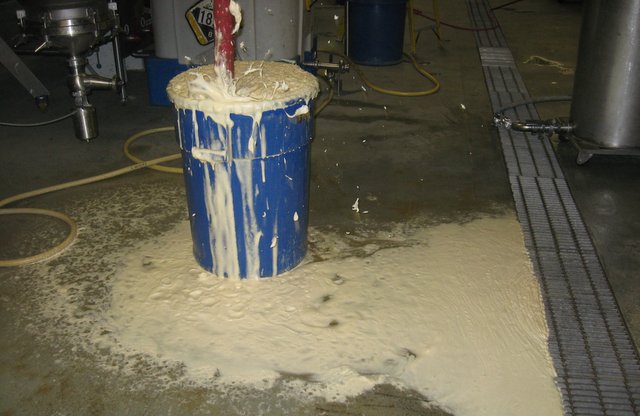Reducing BOD and TSS in your facility wastewater
Many food processing plants, breweries, and even restaurants face issues regarding the water they discharge to the local wastewater treatment plant. Many facility managers have become familiar with the term FOG (Fats Oils and Grease), but are you aware of wastewater issues stemming from BOD and TSS?
First, let's define some terms. Biochemical oxygen demand (BOD) is a measure of the nutrient value of wastewater. Total suspended solids (TSS) is a measure of suspended solids in wastewater. Generally speaking, domestic wastewater has a BOD and TSS of about 150 mg/L. Food processing plants and breweries can have wastewater with a BOD of about 10,000 mg/L and a TSS of 5,000 mg/L. To remove BOD, a wastewater treatment plant has to aerate the water, which requires a lot of horsepower, aka electricity. Greater BOD also ends up with greater amounts of sludge to dispose of. High concentrations of TSS can cause clogs and scour pipes and even machinery. It also can cause many problems for stream health and aquatic life.
Local wastewater authorities are starting to crack down on facilities that have too much "waste" in their water due to the burden it causes on the wastewater plants and the environment. Drain-Net Technologies can help your efforts in this area. Most water flows through some sort of drain before it exits your facility, and well, we are the drain experts! We have many filters, strainers, nets, and more. Our experts fab shop can design and make just about any filter you need. We work with leading manufacturers all over the world to solve our customers wastewater and drain issues. Please look around our website, or give us a call if we can be of help.

Here is an out-of-control fermenter's blow off entering the trench drains.
Recent Posts
-
How to clean a Grease Trap
Cleaning a grease trap is an important maintenance task to prevent clogs, odors, and compliance issu …16th Dec 2024 -
What does Grease Trap do?
Grease traps, also known as grease interceptors, are plumbing devices designed to capture and separa …4th Jun 2024 -
Where to dump a Floor Scrubber?
An important aspect of operating a floor scrubber is the proper dumping of the cleaning solution and …2nd May 2024



